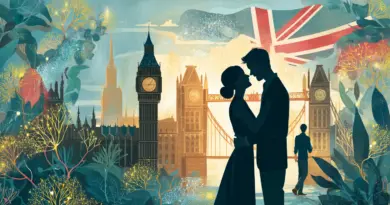Vídeo | The Art of Conversation
A arte da conversa está em destaque no episódio do 6 Minute English da BBC, onde Sam e Neil exploram a importância de trocar ideias e ouvir para compreender, em vez de apenas responder. Inspirados pelo livro de Nihal Arthanayake, Let’s Talk: How to Have Better Conversations, eles discutem como boas conversas podem enriquecer nossas vidas, quebrar barreiras e criar conexões verdadeiras. Em um mundo dominado pelas redes sociais, onde opiniões frequentemente se sobrepõem à escuta, o diálogo autêntico surge como um poderoso recurso para construir pontes e promover entendimento. Descubra como conversar pode ser mais que palavras — pode ser uma arte.
| Audio | |
|---|---|
Normal | Slow |
| English Transcript | Tradução |
| Hello. | Olá. |
| This is 6 Minute English from BBC Learning English. | Este é o 6 Minute English da BBC Learning English. |
| I’m Sam. | Eu sou Sam. |
| And I’m Neil. | E eu sou Neil. |
| Recently I met up with an old school friend who I hadn’t seen for years. | Recentemente, me encontrei com um velho amigo de escola que não via há anos. |
| We talked for hours… It sounds like you had a good chinwag – a long and pleasant conversation between friends, which is great because in this programme we’re talking about talking. | Conversamos por horas… Parece que você teve um bom bate-papo – uma conversa longa e agradável entre amigos, o que é ótimo porque neste programa vamos falar sobre conversar. |
| We’ll be discussing conservations – the exchange of ideas, thoughts and feelings that happens when people talk to each other. | Vamos discutir conversas – a troca de ideias, pensamentos e sentimentos que acontece quando as pessoas falam umas com as outras. |
| And as usual we’ll be learning some new vocabulary as well. | E, como de costume, também vamos aprender algum vocabulário novo. |
| With the rise of Twitter and social media, which encourages us to give our opinion on a subject without always listening in return, some think the art of conversation is being lost. | Com a ascensão do Twitter e das redes sociais, que nos encorajam a dar a nossa opinião sobre um assunto sem sempre ouvir em troca, alguns pensam que a arte da conversa está sendo perdida. |
| But luckily, there are still millions of us who love to talk, chat, chinwag and chatter away. | Mas, felizmente, ainda há milhões de nós que adoram conversar, bater papo, prosear e tagarelar. |
| In fact, in 2012 a competition in Latvia broke the world record for the longest telephone conversation. | De fato, em 2012, uma competição na Letônia quebrou o recorde mundial da conversa telefônica mais longa. |
| So, Neil, my question is this: how long did this record-breaking conversation last? | Então, Neil, a minha pergunta é esta: quanto tempo durou esta conversa que quebrou o recorde? |
| Was it: a) 24 hours and 4 minutes? b) 54 hours and 4 minutes? or, c) 84 hours and 4 minutes? | Foi: a) 24 horas e 4 minutos? b) 54 horas e 4 minutos? ou, c) 84 horas e 4 minutos? |
| Hmmm, I’ll guess a) 24 hours and 4 minutes, after which they probably fell asleep! | Hmmm, vou chutar a) 24 horas e 4 minutos, depois dos quais eles provavelmente adormeceram! |
| OK, Neil, I’ll reveal the correct answer later in the programme. | OK, Neil, vou revelar a resposta correta mais tarde no programa. |
| During a long career, DJ and BBC radio presenter, Nihal Arthanayake, has had conversations with hundreds of people. | Durante uma longa carreira, o DJ e apresentador de rádio da BBC, Nihal Arthanayake, teve conversas com centenas de pessoas. |
| Now he’s used these experiences to write a book entitled, ‘Let's Talk: How to Have Better Conversations’. | Agora ele usou essas experiências para escrever um livro intitulado, ‘Vamos Conversar: Como Ter Melhores Conversas’. |
| Here Nihal tells another radio presenter, Michael Rosen, of BBC Radio 4’s, "Word of Mouth", about the influence of his mother who also loved talking to people in her job as a nurse: Well, it gave me the sense that you are enriched by listening. | Aqui, Nihal conta a outro apresentador de rádio, Michael Rosen, do "Word of Mouth" da BBC Radio 4, sobre a influência de sua mãe que também adorava falar com as pessoas no seu trabalho como enfermeira: Bem, isso me deu a sensação de que você é enriquecido ao ouvir. |
| And this was of course, pre-social media which has of course encouraged us to project - to transmit - more than receive. | E isso foi, claro, antes das redes sociais, que, claro, nos encorajaram a projetar – a transmitir – mais do que a receber. |
| So it meant that I guess I was conscious of experiences of others, and wanted to try and understand them. | Então, isso significou que, suponho, eu estava consciente das experiências dos outros e queria tentar entendê-los. |
| Also, partially, Michael, it was a survival instinct because I was a little brown boy in a predominantly white school, a state school in the 1980s. | Além disso, em parte, Michael, era um instinto de sobrevivência porque eu era um garoto pardo em uma escola predominantemente branca, uma escola pública nos anos 80. |
| For Nihal, good conversation involves listening as much as speaking. | Para Nihal, uma boa conversa envolve tanto ouvir quanto falar. |
| By listening we find out things about the person we are talking to which, in turn, help us understand ourselves. | Ao ouvir, descobrimos coisas sobre a pessoa com quem estamos falando que, por sua vez, nos ajudam a nos compreender. |
| This is why Nihal says we are enriched by listening – we are improved by having something else added. | É por isso que Nihal diz que somos enriquecidos ao ouvir – somos melhorados ao ter algo mais adicionado. |
| As a British Asian boy growing up in a white community, Nihal also thinks conversation was a way for him to make friends and find protection. | Como um garoto asiático-britânico crescendo em uma comunidade branca, Nihal também pensa que a conversa foi uma forma de fazer amigos e encontrar proteção. |
| He says having conversations was a survival instinct - the human instinct to do something in a dangerous situation that will keep them safe from harm. | Ele diz que ter conversas era um instinto de sobrevivência – o instinto humano de fazer algo em uma situação perigosa que os manterá a salvo de danos. |
| Nihal sees an important difference between ‘listening simply to reply’, and ‘listening to understand’. | Nihal vê uma diferença importante entre ‘ouvir simplesmente para responder’ e ‘ouvir para compreender’. |
| When we ‘listen to reply’, we are thinking about the next thing we want to say more than trying to understand the other person’s point of view. | Quando ‘ouvimos para responder’, estamos pensando na próxima coisa que queremos dizer mais do que tentando compreender o ponto de vista da outra pessoa. |
| ‘Listening to understand’, on the other hand, helps build bridges - improve relationships between people who are very different or do not like each other. | ‘Ouvir para compreender’, por outro lado, ajuda a construir pontes – a melhorar as relações entre pessoas que são muito diferentes ou que não gostam umas das outras. |
| Here’s Nihal again in conversation with BBC Radio 4’s, "Word of Mouth": So conversation can build bridges, and it is proven through history that conversation has, and that conversation can be seen as an art form, and that's one of the things that I want us to understand – it's not just tittle tattle, it's not just shouting at each other on social media, it's not two politicians talking over each other. | Aqui está Nihal novamente em conversa com o "Word of Mouth" da BBC Radio 4: Então a conversa pode construir pontes, e está provado através da história que a conversa o fez, e que a conversa pode ser vista como uma forma de arte, e essa é uma das coisas que quero que entendamos – não é apenas fofoca, não é apenas gritar uns com os outros nas redes sociais, não são dois políticos falando um por cima do outro. |
| Good conversation brings people together, unlike tittle-tattle - talk about other people's lives that is usually unkind, disapproving, or untrue. | Uma boa conversa une as pessoas, ao contrário da fofoca – conversa sobre a vida de outras pessoas que geralmente é indelicada, desaprovadora ou falsa. |
| And good conversation involves taking turns, not talking over someone – trying to silence people by talking more loudly, forcefully, and persistently than them. | E uma boa conversa envolve alternar a vez, não falar por cima de alguém – tentar silenciar as pessoas falando mais alto, com mais força e mais persistentemente do que elas. |
| Hopefully, Nihal’s tips can help us all have better conversations, encounter new ideas and make friends. | Esperamos que as dicas de Nihal possam nos ajudar a todos a ter melhores conversas, a encontrar novas ideias e a fazer amigos. |
| So, Sam, did you do any of these things when you met up with your old school friend? | Então, Sam, você fez alguma dessas coisas quando se encontrou com seu velho amigo de escola? |
| I think so. | Acho que sim. |
| We both listened to each other, there was no tittle-tattle but a little bit of gossip. | Ambos nos ouvimos, não houve fofoca, mas um pouco de mexerico. |
| Before we knew it a couple of hours had passed - but not as much time as those record-breaking telephone conservations I mentioned earlier. | Antes que percebêssemos, umas duas horas tinham passado – mas não tanto tempo quanto aquelas conversas telefônicas recordistas que mencionei anteriormente. |
| Ah yes, in your question you asked how long the world’s longest telephone conversation lasted. | Ah sim, na sua pergunta, você perguntou quanto tempo durou a conversa telefônica mais longa do mundo. |
| It guessed it was an incredible 24 hours and 4 minutes… was I right? | Eu chutei que foram incríveis 24 horas e 4 minutos… acertei? |
| Well, Neil, I’m afraid that was… the wrong answer. | Bem, Neil, receio que essa tenha sido… a resposta errada. |
| In fact, the record-breaking conversation lasted 54 hours and 4 minutes - about the same as 540 programmes of 6 Minute English! | De fato, a conversa que quebrou o recorde durou 54 horas e 4 minutos – o mesmo que 540 programas de 6 Minute English! |
| Wow! OK, let’s recap the vocabulary we’ve learned from this programme on the art of good conversations, starting with chinwag – a long and pleasant conversation between friends. | Uau! OK, vamos recapitular o vocabulário que aprendemos neste programa sobre a arte das boas conversas, começando com bate-papo – uma conversa longa e agradável entre amigos. |
| When something is enriched, it’s improved by having something else added to it. | Quando algo é enriquecido, é melhorado ao ter algo mais adicionado. |
| The survival instinct is the basic instinct in humans and animals to do something in a dangerous situation that will keep them alive. | O instinto de sobrevivência é o instinto básico em humanos e animais de fazer algo em uma situação perigosa que os manterá vivos. |
| If you build bridges, you improve relationships between people who are very different or do not like each other. | Se você constrói pontes, você melhora as relações entre pessoas que são muito diferentes ou que não gostam umas das outras. |
| Tittle-tattle is talk about other people's lives that is usually unkind, disapproving, or untrue. | Fofoca é falar sobre a vida de outras pessoas que geralmente é indelicada, desaprovadora ou falsa. |
| And finally, if you talk over someone, you silence or drown them out by talking more loudly than them. | E, finalmente, se você fala por cima de alguém, você silencia ou abafa a pessoa falando mais alto do que ela. |
| That’s the end of our conversation, but remember to join us soon for more trending topics and useful vocabulary. | Este é o fim da nossa conversa, mas lembre-se de nos procurar em breve para mais tópicos em alta e vocabulário útil. |
| Bye for now! | Até logo! |
| Goodbye! | Tchau! |
Contagem de palavras
A tabela abaixo exibe as palavras encontradas neste vídeo, bem como o número de vezes em que aparecem.
Veja também: Para que serve esta tabela?
| Freq. | Palavra | Freq. | Palavra | Freq. | Palavra |
|---|---|---|---|---|---|
| 28 | and | 25 | the | 24 | to |
| 22 | a | 21 | of | 17 | in |
| 16 | conversation | 15 | is | 14 | we |
| 14 | it | 14 | I | 13 | that |
| 10 | was | 10 | other | 10 | as |
| 9 | you | 9 | people | 8 | us |
| 8 | talking | 8 | nihal | 8 | listening |
| 8 | are | 7 | this | 7 | not |
| 7 | hours | 7 | for | 7 | by |
| 7 | about | 6 | with | 6 | understand |
| 6 | them | 6 | talk | 6 | or |
| 6 | each | 5 | who | 5 | which |
| 5 | something | 5 | so | 5 | more |
| 5 | minutes | 5 | long | 5 | instinct |
| 5 | good | 5 | do | 5 | conversations |
| 5 | between | 4 | when | 4 | tittle |
| 4 | than | 4 | tattle | 4 | school |
| 4 | record | 4 | radio | 4 | on |
| 4 | neil | 4 | ll | 4 | friends |
| 4 | but | 4 | bbc | 4 | an |
| 3 | well | 3 | vocabulary | 3 | up |
| 3 | things | 3 | telephone | 3 | survival |
| 3 | social | 3 | programme | 3 | over |
| 3 | media | 3 | m | 3 | like |
| 3 | how | 3 | having | 3 | has |
| 3 | had | 3 | from | 3 | enriched |
| 3 | english | 3 | chinwag | 3 | can |
| 3 | build | 3 | bridges | 3 | breaking |
| 3 | be | 3 | art | 3 | also |
| 2 | your | 2 | world | 2 | word |
| 2 | will | 2 | white | 2 | want |
| 2 | very | 2 | usually | 2 | untrue |
| 2 | unkind | 2 | trying | 2 | think |
| 2 | these | 2 | there | 2 | someone |
| 2 | some | 2 | situation | 2 | silence |
| 2 | seen | 2 | says | 2 | sam |
| 2 | reply | 2 | relationships | 2 | question |
| 2 | presenter | 2 | pleasant | 2 | person |
| 2 | out | 2 | our | 2 | old |
| 2 | ok | 2 | now | 2 | new |
| 2 | much | 2 | mouth | 2 | minute |
| 2 | michael | 2 | met | 2 | make |
| 2 | loudly | 2 | longest | 2 | lives |
| 2 | little | 2 | let | 2 | learning |
| 2 | lasted | 2 | keep | 2 | just |
| 2 | involves | 2 | improved | 2 | improve |
| 2 | if | 2 | ideas | 2 | here |
| 2 | help | 2 | he | 2 | have |
| 2 | guess | 2 | friend | 2 | find |
| 2 | fact | 2 | experiences | 2 | else |
| 2 | disapproving | 2 | different | 2 | did |
| 2 | dangerous | 2 | course | 2 | conservations |
| 2 | boy | 2 | better | 2 | because |
| 2 | answer | 2 | added | 1 | yes |
| 1 | years | 1 | wrong | 1 | write |
| 1 | wow | 1 | without | 1 | why |
| 1 | way | 1 | was… | 1 | wanted |
| 1 | view | 1 | ve | 1 | usual |
| 1 | useful | 1 | used | 1 | unlike |
| 1 | two | 1 | 1 | turns | |
| 1 | turn | 1 | try | 1 | trending |
| 1 | transmit | 1 | topics | 1 | together |
| 1 | tips | 1 | time | 1 | through |
| 1 | thoughts | 1 | those | 1 | thinks |
| 1 | thinking | 1 | thing | 1 | they |
| 1 | tells | 1 | talked | 1 | taking |
| 1 | subject | 1 | still | 1 | state |
| 1 | starting | 1 | speaking | 1 | sounds |
| 1 | soon | 1 | simply | 1 | shouting |
| 1 | sense | 1 | sees | 1 | say |
| 1 | same | 1 | safe | 1 | s |
| 1 | rosen | 1 | rise | 1 | right |
| 1 | reveal | 1 | return | 1 | remember |
| 1 | recently | 1 | receive | 1 | recap |
| 1 | re | 1 | proven | 1 | protection |
| 1 | project | 1 | programmes | 1 | probably |
| 1 | predominantly | 1 | pre | 1 | politicians |
| 1 | point | 1 | persistently | 1 | passed |
| 1 | partially | 1 | ourselves | 1 | others |
| 1 | opinion | 1 | one | 1 | nurse |
| 1 | no | 1 | next | 1 | my |
| 1 | mother | 1 | minutes… | 1 | millions |
| 1 | mentioned | 1 | meant | 1 | me |
| 1 | luckily | 1 | loved | 1 | love |
| 1 | lost | 1 | listened | 1 | listen |
| 1 | learned | 1 | latvia | 1 | later |
| 1 | last | 1 | knew | 1 | join |
| 1 | job | 1 | influence | 1 | incredible |
| 1 | important | 1 | hundreds | 1 | humans |
| 1 | human | 1 | hours… | 1 | hopefully |
| 1 | hmmm | 1 | history | 1 | his |
| 1 | him | 1 | her | 1 | helps |
| 1 | hello | 1 | harm | 1 | happens |
| 1 | hand | 1 | hadn | 1 | guessed |
| 1 | growing | 1 | great | 1 | gossip |
| 1 | goodbye | 1 | give | 1 | gave |
| 1 | form | 1 | forcefully | 1 | finally |
| 1 | fell | 1 | feelings | 1 | exchange |
| 1 | entitled | 1 | end | 1 | encourages |
| 1 | encouraged | 1 | encounter | 1 | earlier |
| 1 | during | 1 | drown | 1 | dj |
| 1 | discussing | 1 | difference | 1 | couple |
| 1 | correct | 1 | conscious | 1 | competition |
| 1 | community | 1 | chatter | 1 | chat |
| 1 | career | 1 | c | 1 | bye |
| 1 | brown | 1 | broke | 1 | british |
| 1 | brings | 1 | both | 1 | book |
| 1 | bit | 1 | being | 1 | before |
| 1 | basic | 1 | b | 1 | away |
| 1 | at | 1 | asleep | 1 | asked |
| 1 | asian | 1 | arthanayake | 1 | any |
| 1 | another | 1 | animals | 1 | always |
| 1 | all | 1 | alive | 1 | ah |
| 1 | again | 1 | after | 1 | afraid |









